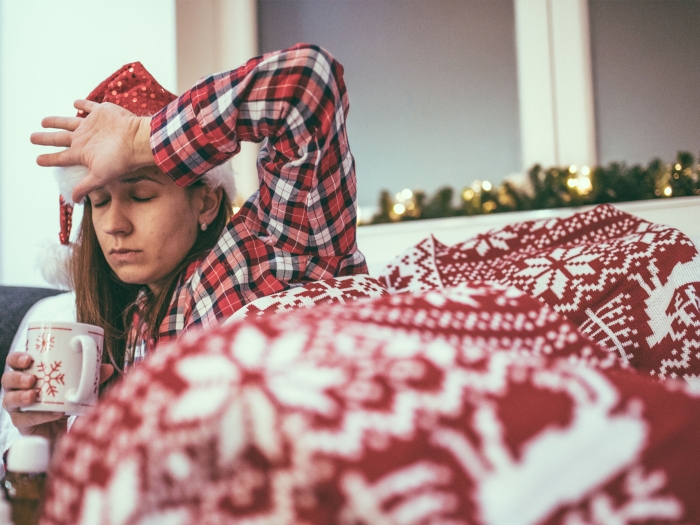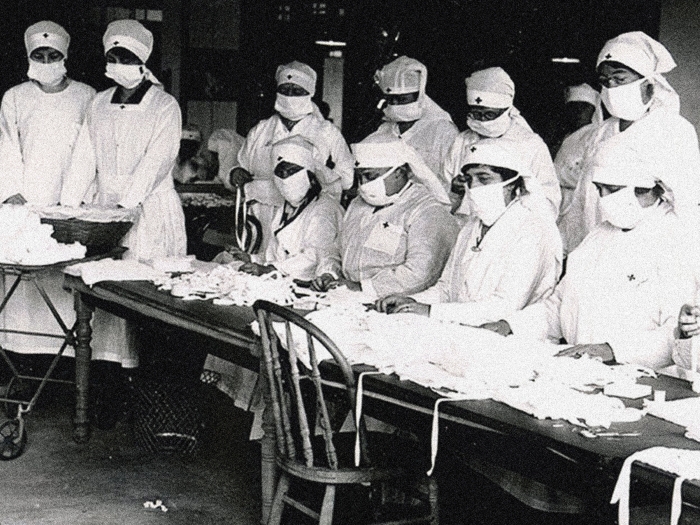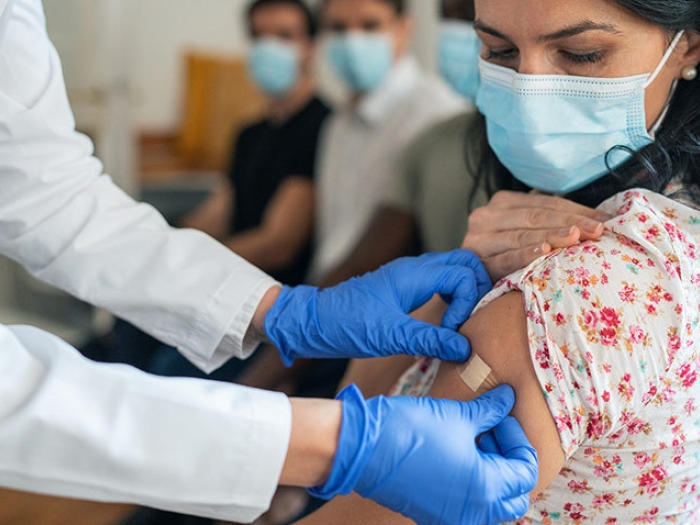Experts weigh in on how best to adapt to new mask-related policies.
9:00 AM
Author |

It might be fair to say that you may have grown accustomed to lifestyle modifications since the beginning of the pandemic. Social distancing and mask wearing have offered many a sense of control during a seemingly never-ending year of uncertainty.
But after rigorously modifying your lifestyle to protect yourself and others from the spread of COVID-19, you may now be experiencing feelings of anxiety as mask mandates are lifted for vaccinated individuals in most places.
"Many people found comfort and certainty in following the CDC-recommended guidelines," says Tyler Grove, Ph.D., L.P., a clinical assistant professor at Michigan Medicine who specializes in anxiety. "We've had over a year of reinforced behaviors (with proven effectiveness) that have helped people cope with the negative aspects of living through a pandemic."
MORE FROM MICHIGAN: Sign up for our weekly newsletter
Grove goes on to note that once these precautions were removed, that level of comfort and certainty likely decreased for many people.
"Some were planning to continue following these safety measures for a much longer period of time, so their plans have been drastically altered," says Grove. "This may lead to feelings of uncertainty as people adjust to navigating things like social situations and other activities where masks were previously required."
According to Laraine Washer, M.D., Michigan Medicine's epidemiologist and an infectious disease physician, if you're vaccinated and have a regular immune system, you are highly protected from contracting COVID-19.
"Breakthrough cases in vaccinated individuals are rare and when they occur, they tend to be mild," she says. "We are not seeing fully vaccinated people require hospitalization due to COVID-19 infections. As the community rates of COVID-19 transmission decrease, vaccinated people can safely begin to remove their masks."
However, Washer adds that "vaccinated patients who are immunocompromised, such as organ transplant recipients, should continue to wear masks and discuss a plan with their doctors."
Trusting your neighbor
Most mask mandates now revolve around an honor system when it comes to vaccination status, which can further fuel feelings of uncertainty and avoidance.
"We know that an intolerance of uncertainty can drive anxiety, so these feelings all make sense," says Grove. "But with time, we must learn to manage and tolerate this uncertainty, just as we learned how to manage and tolerate the uncertainty that we experienced at the beginning of the pandemic."
Grove says that if you initially preferred a more gradual removal of COVID-19 precautions, you can now choose to adopt a more gradual reduction of precautions on your own.
"I think it's important for people to remember that they can start to engage with others and in activities at their own pace, regardless of mandates," says Grove. "This is comparable to exposure therapy, where you gradually face things that you had previously been avoiding."
In this case, however, Grove says that the avoidance is both appropriate and understandable.
Like Podcasts? Add the Michigan Medicine News Break on iTunes, Google Podcast or anywhere you listen to podcasts.
"We were told to avoid others and gatherings to prevent illness, so it will take time for people to 'dial down' the precautions that we have adapted to over the last year," he says. "If it gets to be too overwhelming, patience is important. If it's a slow process for someone, that's perfectly acceptable. We all need to respect and support each other."
If you do not feel comfortable entering a store because you're unsure about the vaccination status of others, Grove says that at this point in time, it's reasonable to avoid the store or continue wearing your mask when shopping.
"As we gather more information over time, we'll have a better understanding of the effects of the new mask mandate," he says. "However, one thing to do right now is to observe the worries that are driving your anxiety. If you can become aware of the thoughts that make you feel anxious, you can challenge them by looking at the evidence for and against them."
The path forward for dealing with pandemic-related anxiety
Adam Horwitz, Ph.D., is an assistant professor at Michigan Medicine who specializes in anxiety, trauma and suicide prevention. He has worked extensively with veterans and sees many similarities between these patients and what individuals may be experiencing today.
"When operating in a combat zone, military personnel need to take extreme precautions to maintain their safety, and there is often an unease when returning to civilian life and shedding these layers of protection that they relied on overseas," says Horwitz. "This can be likened to what many are feeling nowadays; an anxiety about shedding a layer of safety that we relied on to protect us from the pandemic, our masks, in the context of a return 'home' to normalcy."
Horwitz adds that as COVID-19 cases are decreasing and vaccination rates are increasing, those that have relied upon, advocated for and trusted science throughout the pandemic should continue to do so.
"These changes in policies surrounding mask usage, for example, are rooted in scientific evidence and hard data," he says. "We have made it to a safer place in regards to the pandemic, therefore allowing us this opportunity to relax many of the previously required safety measures."
Horwitz notes that if you choose to continue wearing a mask, you aren't harming others, but it's also fine to adhere to the new mask mandate if you're vaccinated and comfortable foregoing a face covering in public.
"It's important to remember that our sense of safety is very much predicated on our behavior, and things will continue to feel unsafe until we start to do them and realize that our feared prediction does not happen," he says. "We just recently took the training wheels off my five-year-old son's bicycle, which was met with some resistance because he was afraid of falling and getting hurt. While the prediction of falling was inevitably accurate for a first attempt, he learned that it didn't hurt very much, and was able to work through the fear of no longer having these extra wheels attached. As he continues to practice, this fear will continue to decrease, because with few exceptions, the best way to get over our fears is by doing the actual thing we're afraid of."

Explore a variety of health care news & stories by visiting the Health Lab home page for more articles.

Department of Communication at Michigan Medicine
Want top health & research news weekly? Sign up for Health Lab’s newsletters today!





